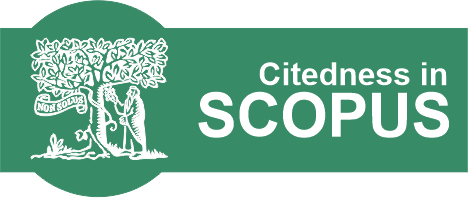Enhancing English Communication Skill Through Moba And Fps Game
Keywords:
English communication skills, MOBA games, FPS games, game-based learning, language acquisitionAbstract
The expanding ubiquity of Multiplayer Online Fight Field (MOBA) and First-Person Shooter (FPS) video diversions presents a special opportunity to make strides English communication abilities among gamers. This think about explores how intelligently diversion mechanics, time-based communication, and advanced social situations in these diversion sorts can be utilized as viable dialect learning instruments. This consider utilized a quantitative approach with an exploratory plan, including 25 tall school understudies. Members locked in in organized gaming sessions utilizing well known MOBA and FPS diversions. Information was collected through pre-test and post-test appraisals, which measured participants' English communication aptitudes, advancement, compression, tuning in comprehension, and verbal interaction capacities. Members from different phonetic foundations locked in in organized gaming sessions, with their communication designs, comprehension authority, and conversational familiarity methodically assessed. The comes about appeared noteworthy changes in verbal English capability, and real-time communication abilities among members who routinely taken an interest in multiplayer gaming intelligent. Measurable examination uncovered noteworthy changes in English communication aptitudes among members. Members illustrated made strides lexicon maintenance, expanded talking certainty, and made strides etymological interaction through game-based learning. The discoveries propose that MOBA and FPS recreations can serve as viable complementary instruments for English dialect instruction, advertising a lock in and immersive learning involvement. This ponder contributes to the rising field of game-based dialect learning, by giving experimental prove on the potential of video recreations as instructive assets. Suggestions are made for teachers and dialect learning experts to coordinated vital diversion approaches into English dialect instructing strategies.
References
Aghlara, A., & Hadiditamjid, F. (2011). The effect of digital games on vocabulary retention in foreign language learning. Journal of Language and Learning, 5(2), 28-38.
Ali Derakhshan, & Elham Davoodi Khatir. (2015). The role of video games in foreign language learning: A case study of EFL students. International Journal of Education and Literacy Studies, 3(4), 1-8.
Coller, J., & Asbell-Clarke, J. (2016). Challenging games help students learn: An empirical study on engagement, flow, and immersion in game-based learning. Computers in Human Behavior, 54, 170-179.
Fauzi, A. (2019). The influence of the online game PUBG (Player Unknown's Battle Ground) on student learning achievement. SciensEdu Journal, 2(1), 14-20.
Iskandar, F. R., Hidayat, S., & Ganda, N. (2019). The impact of the Mobile Legends game on elementary school students' learning motivation. EduBasic Journal: Journal of Elementary Education, 1(2), 116-122.
Kurniawan, D. (2017). The impact of First-Person Shooter (FPS) games on learning and English language acquisition. International Journal of Computer Science & Information Technology, 9(5), 95-102.
Yip, F. W., & Kwan, A. C. M. (2006). Online vocabulary games as a tool for teaching and learning English vocabulary. EMI. Educational Media International, 43(3), 233-249.
Yip, F. W., & Kwan, A. C. M. (2007). Online vocabulary games as a tool for teaching and learning English vocabulary. EMI. Educational Media International, 43(3), 233-249.
Gee, J. P. (2003). What video games have to teach us about learning and literacy. Computers in the Schools, 20(3-4), 25-33.
Prensky, M. (2001). Digital natives, digital immigrants. On the Horizon, 9(5), 1-6.
Squire, K. (2005). Changing the game: What happens when video games enter the classroom? Innovate: Journal of Online Education, 1(6), 1-6.
Steinkuehler, C., & Duncan, S. (2008). Scientific habits of mind in virtual worlds. In Proceedings of the International Conference of the Learning Sciences, 2, 2-6.
Anwar, A., & Efransyah, A. (2021). Language acquisition and game-based learning. Widyahening Journal, 5(2), 109-120.
Reinders, H., & Wattana, S. (2014). The effectiveness of computer games as a language learning tool. Language Learning & Technology, 18(2), 73-89.
Mayer, R. E., & Moreno, R. (2003). Nine ways to reduce cognitive load in multimedia learning. Educational Psychologist, 38(1), 43-52.
Aarsand, P. (2016). Language learning through interactive video games: Exploring the impact of FPS games on language acquisition. Journal of Interactive Learning Research, 27(2), 165-179.
de Haan, J. (2018). Learning with video games: Cognitive and educational outcomes. European Journal of Educational Research, 7(2), 55-70.
Anderson, C. A., & Dill, K. E. (2000). Video games and aggressive thoughts, feelings, and behavior in the laboratory and in life. Journal of Personality and Social Psychology, 78(4), 772-790.
Squire, K. D., & Jenkins, H. (2003). Harnessing the power of games in education. Insight: A Journal of Interactive Media, 4(1), 1-16.
Shute, V. J., & Ke, F. (2012). Games for learning: A research review. Educational Psychologist, 47(1), 10-23.
Downloads
Published
How to Cite
Issue
Section
License
Copyright (c) 2024 Rachmat Jumazni, Andi Sadapotto, Lababa

This work is licensed under a Creative Commons Attribution-ShareAlike 4.0 International License.


































